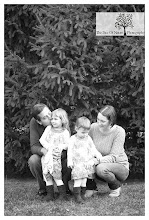There seems to be two types of poetry written by Arab-Americas: those pieces that could have been written by anyone, and those pieces who could only have been written by an Arab-American. Because I believe it's important for students to see both the similarities and differences among people, the following selections fall in both groups.
Grape Leaves: A Century of Arab American Poetry
D.H. Melmem's "Grandfather: Frailty Is Not the Story" (p.106-107) is a poem about remembering the dead and/or sick as they were alive and healthy. As many students have dealt with the deaths of their family members, this poem is particularly poignant. Another universal poem is "Generations," by Joseph Awad (p. 140), about the love shared between father and son. "Being a Good Americani" (p.198-199) obviously falls into the other category. This poem explains what it takes to act/be American. The strongest part of the poem is the end, when the speaker talks about finding the perfect time to remember his life in Palestine. Students will find this poem accessible and will only need help with the Dallas reference.
Inclined to Speak: An Anthology of Contemporary Arab American Poetry
"Flying" by Assef Al-Jundi (p. 37-38) speaks to the cultural differences between life in Syria and life in the United States and how difficult it is for Syrians to immigrate.
Sinan Antoon's "A Photograph" (p. 53) paints a bleak picture of the Iraq war using a photograph from the front page of the New York Times. Antoon's "A Letter" is also about the Iraq war. It addresses the numerous Iraqi dead, bringing to light the fact that no one knows exactly how many have died and could be taught with "For Which It Stands" (p. 146-147) and "Intifada" (p. 137-138) by Samuel Hazo on the same themes.
"Thinking American" by Hayan Charara (p. 73-74) would pair very well with "Being a Good Americani." In this poem, Charara describes the plight of a blue-collar Arab worker in Detroit. Along the same lines is "Dying with the Wrong Name" by Sam Hamod (o. 120-129), which is a long poem about assimilation. Teachers who don't want to use the entire piece could easily use just the first part (p. 120-121).
Poems about prejudice include "mike check" by Suheir Hammad (p. 118-119), "My Grandmother Washes Her Feet in the Sink of the Bathroom at Sears" (p. 171-173) and "Hijab Scene #1" and "Hijab Scene #2" (p. 174) all by Mohja Kahf.
Lisa Suhair Majaj's "I Remember My Father's Hands" in which she remembers her father through his hands would work well with Melmem's "Grandfather" and Awad's "Generations."
Subscribe to:
Post Comments (Atom)

No comments:
Post a Comment